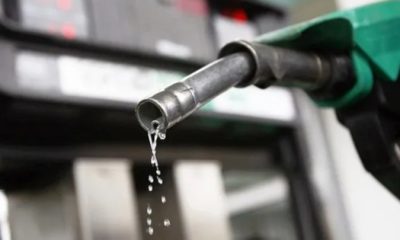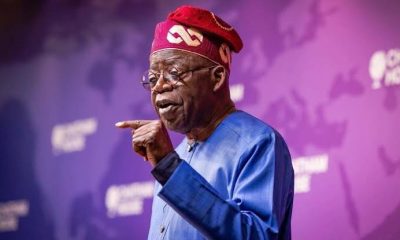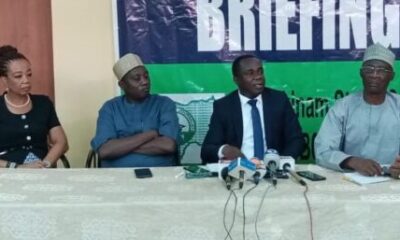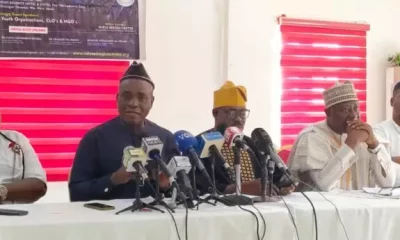Headline
Marketers Project ₦700/Litre Petrol
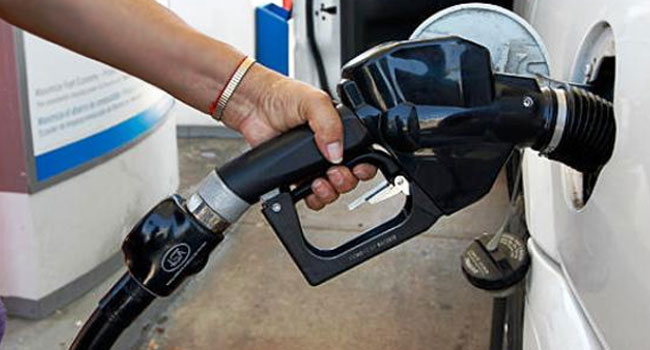
Oil marketers have projected that the pump price of petrol could rise above N700 per litre in Northern Nigeria starting from July.
The National Controller Operations, Independent Petroleum Marketers Association of Nigeria, Mike Osatuyi, told said on Wednesday that prices could rise to above N700 in the north once independent marketers start importing products from July.
He said while those living in the northern states could pay as much as N700 and above for one litre of petrol, those outside Lagos should expect to pay around N610, as residents in Lagos would pay about N600 per litre.
“What I am seeing is around N600 and above, depending on the exchange rate, the current crude price at the international market and the landing cost. Those in Lagos will pay around N600, those outside Lagos around N600 plus, while those in the north would be paying anything from N700 and above,” he said.
The downstream sector currently awaits fresh petroleum products as the Nigerian Midstream and Downstream Petroleum Regulatory Authority continues to licence operators willing to get involved in the importation business.
The Executive Secretary, Depot and Petroleum Products Marketers Association of Nigeria, Olufemi Adewole, said Tuesday that the NMDPRA was currently licensing more importers.
He said arrangements were on full speed for fresh products from July, adding that prices of products would depend on market fundamentals.
“Where do countries like Ghana, Benin, and Cameroun get their products from? Is it not from Nigeria?,” he asked, making reference to products being smuggled from Nigeria to neighbouring countries.
“Prices of products will depend on market fundamentals, and as we speak, the Nigeria Customs Service is delaying some AGO (diesel) vessels because of the 7.5 per cent VAT.
“And don’t forget, any cost incurred by marketers would be added to landing cost, and then to the pump price. The marketer would also have to add profit because they must make profit,” he said.
A former chairman of the Major Oil Marketers Association of Nigeria, and Chief Executive Officer/Chairman of 11 Plc, Tunji Oyebanji, during a chat on Monday, said consumers should expect new pump prices close to that of diesel, and those of neigbouring African countries that also import petrol.
Headline
EFCC bars dollar transactions, orders embassies to charge in naira

The Economic and Financial Crimes Commission has barred foreign missions based in Nigeria from transacting in foreign currencies and mandated them to use Naira in their financial businesses.
The EFCC has also mandated Nigerian foreign missions domiciled abroad to accept Naira in their financial businesses.
The anti-graft agency said the move is to tackle the dollarisation of the Nigerian economy and the degradation of the naira
The Commission, therefore, asked the government to stop foreign missions in Nigeria from charging visa and other consular services in foreign denominations.
The EFCC gave the advisory in a letter to the Minister of Foreign Affairs, Amb. Yusuf Tuggar, for onward transmission to all foreign missions in the country.
In the letter, the EFCC said it issued the advisory because the practice of paying for consular services in dollars was in conflict with extant laws and financial regulations in Nigeria.
In a letter dated April 5, 2024, which was addressed to the Minister of Foreign Affairs, Ambassador Yusuf Tuggar, titled: “EFCC Advisory to Foreign Missions against Invoicing in US Dollar,” the EFCC Chairman, Ola Olukoyede expressed dismay over the invoicing of consular services in Nigeria by foreign missions in dollars.
The EFCC cited Section 20(1) of the Central Bank of Nigeria Act, 2007, which makes currencies issued by the apex bank the only legal tender in Nigeria.
The letter read, “I present to you the compliments of the Economic and Financial Crimes Commission, and wish to notify you about the commission’s observation, with dismay, regarding the unhealthy practice by some foreign missions to invoice consular services to Nigerians and other foreign nationals in the country in United States dollar ($).
“It states that ‘the currency notes issued by the Bank shall be the legal tender in Nigeria on their face value for the payment of any amount’.
“This presupposes that any transaction in currencies other than the naira anywhere in Nigeria contravenes the law and is, therefore, illegal.”
The commission further stated that the rejection of the naira for consular services in Nigeria by certain missions, along with non-compliance with foreign exchange regulations in determining service costs, is not just unlawful but also undermines the nation’s sovereignty embodied in its official currency.
The letter continues: “This trend can no longer be tolerated, especially in a volatile economic environment where the country’s macroeconomic policies are constantly under attack by all manner of state and non-state actors.
“In light of the above, you may wish to convey the commission’s displeasure to all missions in Nigeria and restate Nigeria’s desire for their operations not to conflict with extant laws and regulations in the country.”
Diplomatic sources said yesterday, May 10, that some embassies were wondering whether the EFCC’s advisory represented the position of the Federal Government.
Headline
Prince Harry visits sick Nigerian soldiers in Kaduna

Prince Harry and his team visited the 44 Nigerian Army Reference Hospital in Kaduna to interact with wounded soldiers who are receiving treatment.
The Duke of Sussex is in Nigeria with his wife to champion the Invictus Games, which Harry founded to aid the rehabilitation of wounded and sick servicemembers and veterans.
Nigeria joined the Invictus Community of Nations in 2022 becoming the first African country to join.
Prince Harry’s visit to Kaduna came 68 years after his late grandmother Queen Elizabeth II visited the state during the time of the late Premier of Northern Region Sir Ahmadu Bello.





